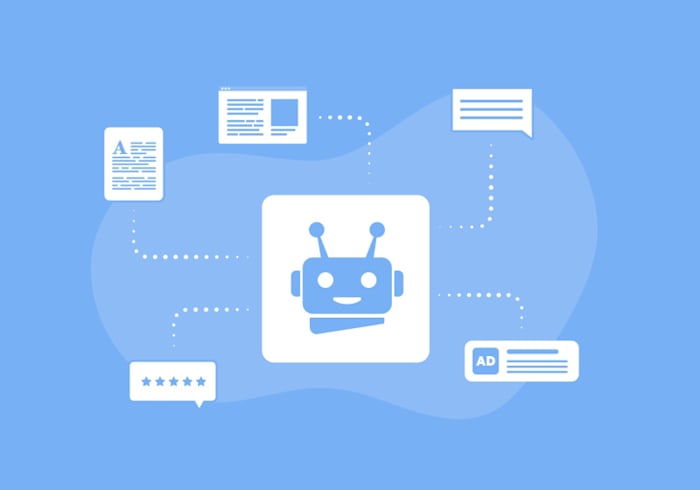Adopt AI in Your Content Marketing Program: A Complete Guide
See how AI can help you create better marketing content with less effort.
 June 5, 2025
June 5, 2025 8 minute reading
8 minute reading
Consistently publishing high-quality content is a challenge every business faces, regardless of size and industry. Small businesses with tight budgets and limited resources can be overwhelmed by the many demands of online marketing. Even with larger budgets and dedicated resources, big brands may also struggle to keep up with trends and growing content demands.
Fortunately, the emergence of AI in content marketing opened the door to more efficient ways to create and execute content marketing strategies, provided you do it right.
Now, how do you actually use AI in content marketing without losing your brand voice or that all-important human touch? That’s exactly what we’ll explore in this guide. You’ll learn what AI content marketing is, its benefits, and how to use AI services to optimize your content marketing strategy effectively.
What is AI in content marketing?
AI in content marketing refers to using machine learning and automation tools to enhance content marketing strategies from end to end. These tools assist with research, content planning, distribution, and creation.
Generative AI platforms like ChatGPT, Jasper, and Grammarly can give you the creative boost needed to generate content ideas, write compelling copy, or polish rough drafts. AI-powered analytics platforms can optimize content for SEO and develop an intelligent content distribution plan.
This tech helps marketers create smarter, faster, and more personalized content, while keeping humans in the creative driver’s seat.
In a nutshell, AI in content marketing speeds up the mechanical aspects of a content marketing campaign. This leaves you more time to focus on data-driven content strategy, storytelling, and the big-picture business moves that drive growth.
What are the benefits of using AI in content marketing?
AI in content marketing is a hot topic at every marketing meeting because it delivers results. Its primary benefits are:
Increased speed and efficiency
Better content optimization
Smarter content scalability
Higher cost savings
With AI, you can draft blog posts, brainstorm ideas, and analyze performance—all before your second cup of coffee. Aside from using AI for content creation, AI tools can also help customize content for humans and algorithms to boost visibility and engagement.
But AI does more than help produce high-quality content. It also enables smarter content distribution across multiple channels without overworking your marketing team. All these benefits make content marketing more cost-effective. Since you can do more with less by automating repetitive tasks, you can reallocate excess budget toward strategy and core business initiatives.
For example, SEO tools such as SurferSEO or Outranking analyze myriad data points from top-ranking pages to come up with what their algorithms consider the best keywords and topics. Doing such an analysis manually would take hours, if not days. And paying an employee to do that regularly would cut into company budgets quickly.
AI tools can also scan web pages and constantly learn from them. This is something humans just can’t keep up with manually. With AI, businesses can increase efficiency, optimize content, and reduce costs at scale, especially when combined with expert guidance from pros on platforms like Fiverr.
How to use AI in content marketing
According to Dane Vahey of OpenAI, “Marketers are among the highest adopters of ChatGPT, but they’re mostly using it for content generation.” This shows how widespread AI tools have become and hints at the untapped potential in optimization, personalization, and other aspects of content marketing.
So, how can you use AI in content marketing beyond generating content? Here are some ways that could help you leverage artificial intelligence in your strategy:
Content ideation
AI can get the creative juices flowing when you’ve been staring blankly at your screen with no idea what to write. Use AI tools for research and insights to brainstorm content ideas that resonate with your target audience.
For keyword research, SEMrush and Ahrefs generate keyword lists based on search trends and intent within your particular market. Crayon or SimilarWeb is great for competitor analytics. Use them to dissect competitor content strategies, learn from their wins, and gain a competitive edge. Then, get hyper-specific with SparkToro or Cortex, which uses AI to understand what your audience truly cares about.
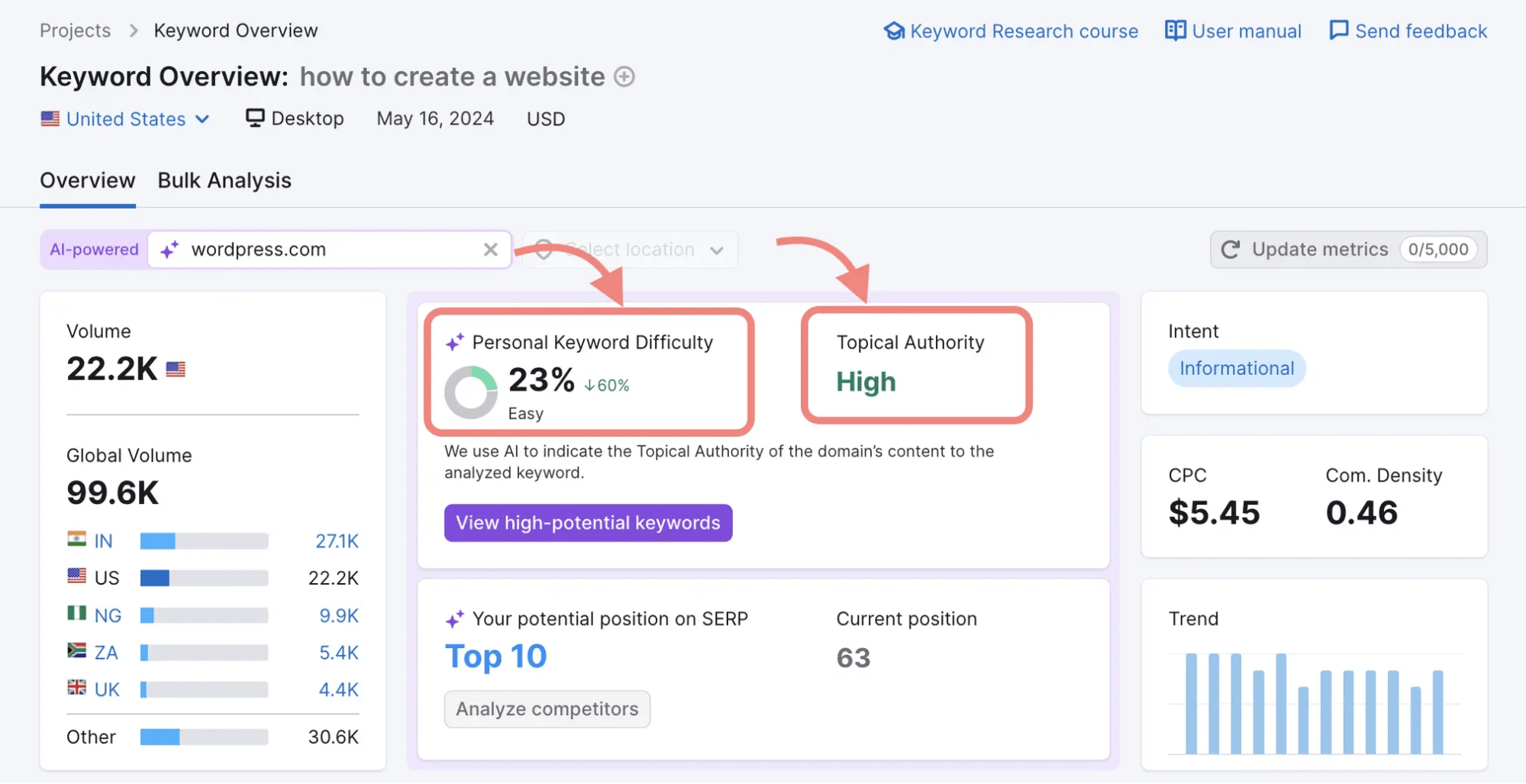
Semrush
Once you’ve gathered your data, plug those insights into generative AI platforms like ChatGPT to craft content angles, headlines, and questions worth answering.
Content creation and optimization
Here’s where the fun part starts—creating content that captures interest and motivates action.
For your first drafts, use AI writing tools like Jasper, ChatGPT, Grammarly, or Copy.ai to crank out blog drafts, social captions, and email outlines in a fraction of the time. If necessary, get help from Fiverr professionals for custom writing prompts that enhance the quality of AI-generated content.
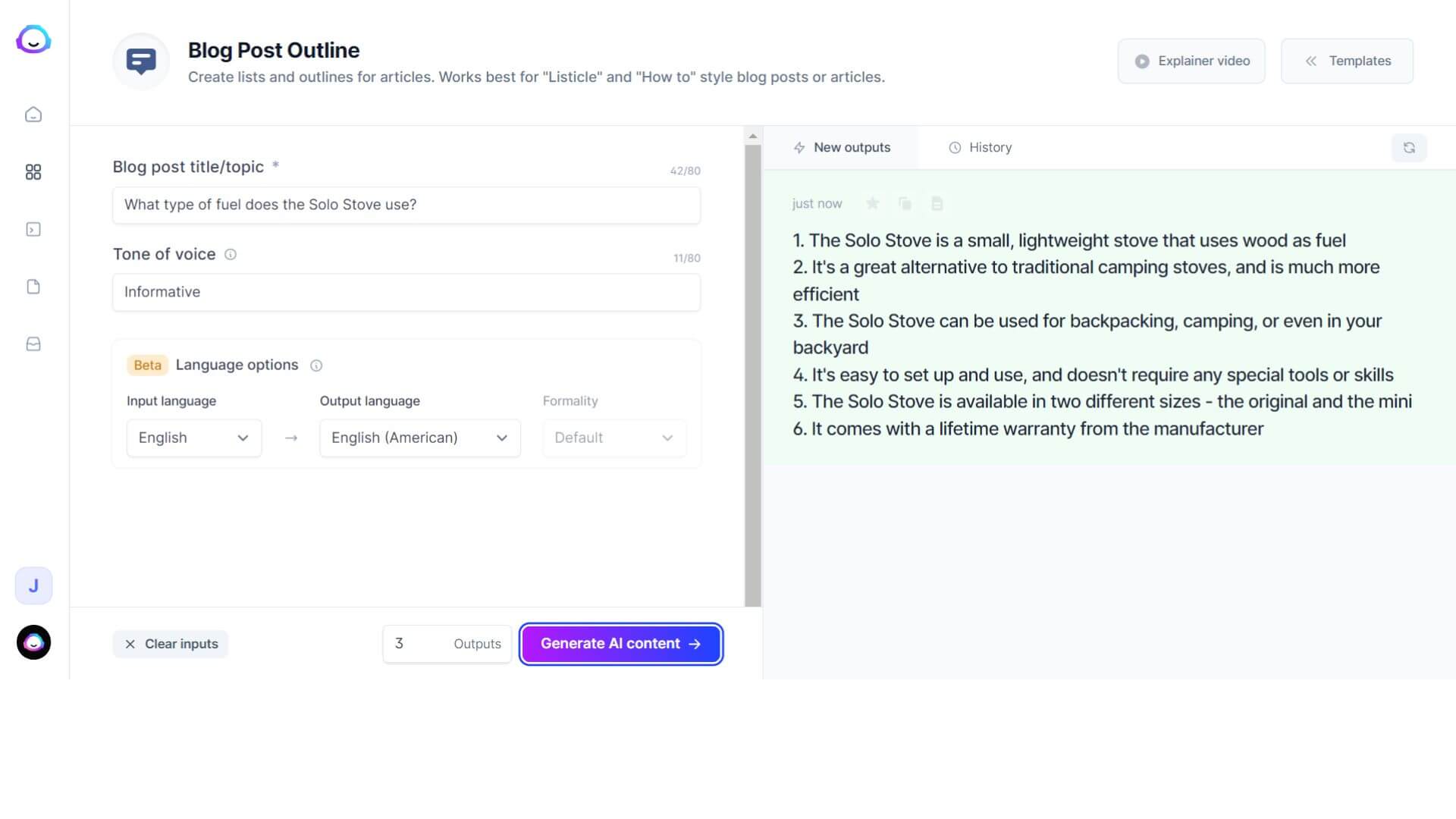
Jasper.ai
For SEO optimization, use Clearscope or SurferSEO to analyze top-performing content and help you structure your copy for search dominance without relying on outdated and ineffective tactics like keyword stuffing.
To make your content feel more relatable, use Persado or OneSpot for content personalization. These AI platforms tweak copy and visuals to match audience behavior for better engagement, particularly in email campaigns.
For multi-platform campaigns, Repurpose.io and Lumen5 are among the best tools. Use them to turn blog posts into tweets, videos into blog posts, or infographics into LinkedIn carousels. Need custom visuals to match your content? Midjourney, DALL-E, and other AI imaging tools can generate unique images based on your prompts.
Content distribution
Now that you have impactful content, you’ve got to get it out there, exactly where your target audience can see it.
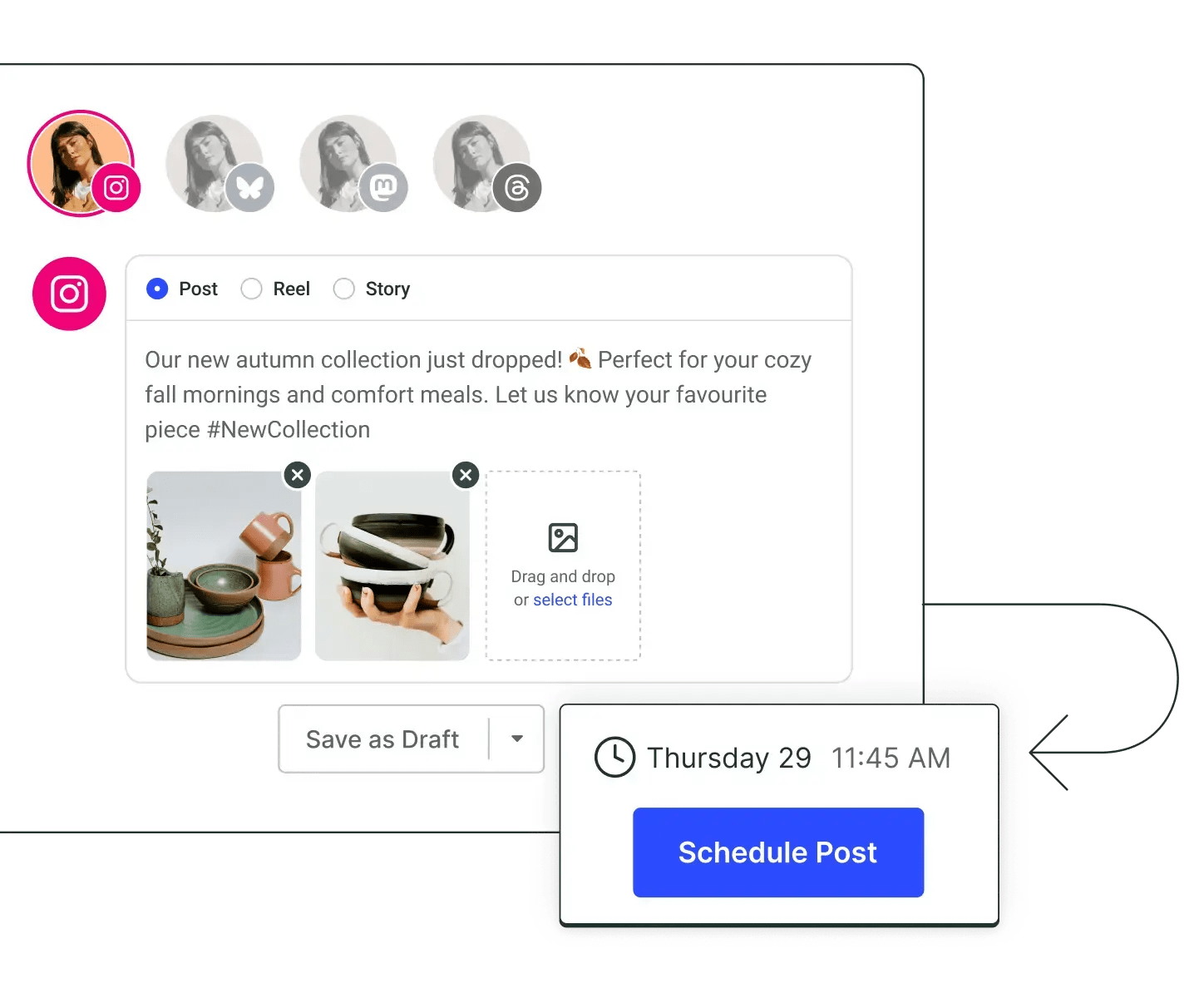
Buffer
Streamline social media management with Buffer, Hootsuite, or Flick. These tools help schedule, optimize, and analyze posts. Some even write captions based on engagement data. For email marketing, Mailchimp and ActiveCampaign have AI tools for subject line testing and send-time optimization that help boost open rates without the guesswork.
Outbrain and Taboola aid in content distribution by leveraging AI to promote your content across the web, driving clicks without draining your ad budget.
Performance analysis and improvement
Content marketing is not a one-off event. It requires constant and consistent improvements over time. And to improve effectively, measurement is essential.
AI is probably the most useful in this phase of content marketing. It tracks performance, analyzes data, conducts tests, and performs audits in a fraction of the time it takes a human to do those activities manually.
AI can synthesize massive datasets to show what’s working (and what’s not) in real time. It can audit your existing content library, flag underperformers, and recommend updates. Tools like Google Analytics 4 and HubSpot AI insights can make life easier for any marketer. Platforms like Optimizely or VWO can also run tests, gather results, and suggest tweaks for better conversions.
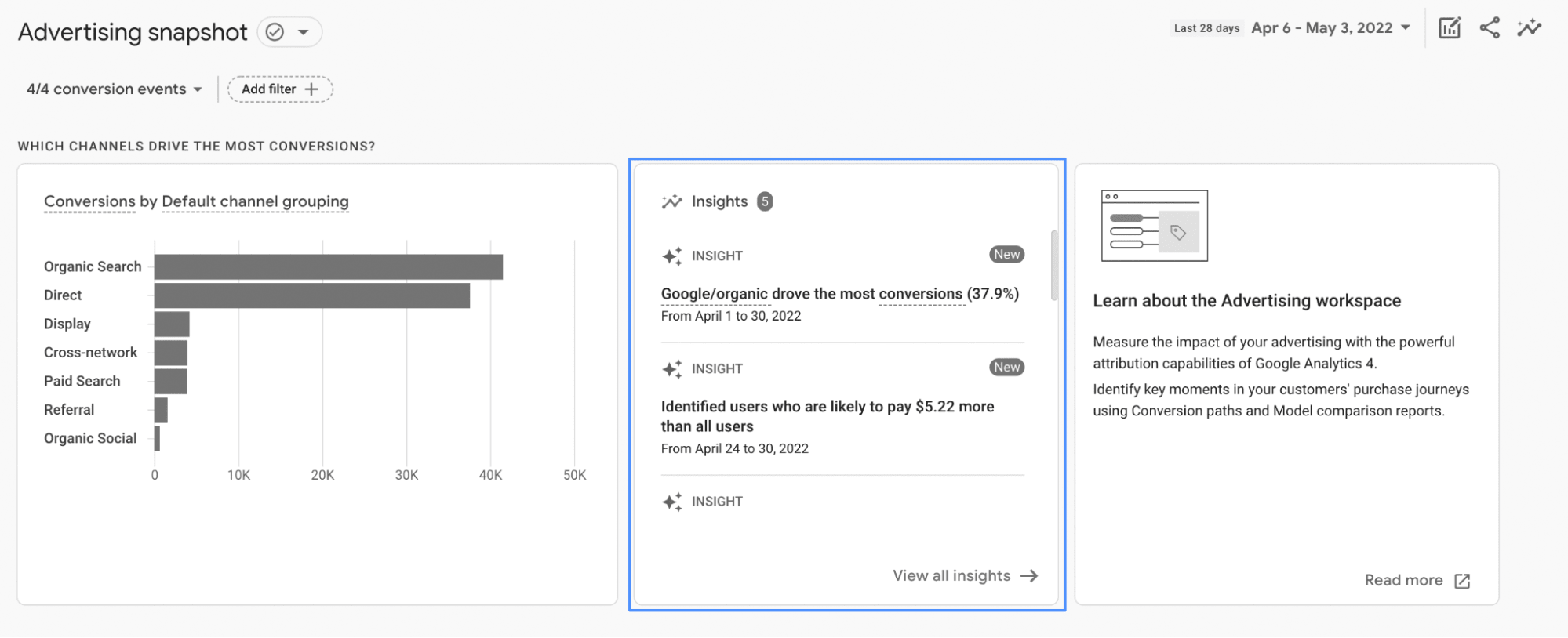
Ethical considerations
There’s no question about it: AI is the practical way forward for smart content marketing. However, using AI to your advantage doesn’t mean you should just throw caution to the wind. It’s still your responsibility to ensure that your content is ethical, accurate, and aligned with your brand values. Here are key considerations when using artificial intelligence:
Human oversight is a must
AI is a helper, not a replacement. Always have a human review content for tone, accuracy, and nuance. To get the best possible outcome, consider getting a professional AI content editor from Fiverr to go over AI-generated content before publishing.
Find an AI content editor for hire
Be transparent
If AI wrote your article, be honest about it. Full disclosure is important, especially in sensitive or regulated industries.
Ensure security
AI tools often need access to your data. Make sure to use platforms with strong privacy policies and secure APIs. Exercise due diligence on your part by choosing reliable content marketing tools.
Audit content for bias and fairness
AI can unintentionally reinforce stereotypes. Regular audits and diverse training data can help minimize bias. Augment your marketing automation tools with specialized tools like IBM Watson OpenScale to check for fairness and bias. Better yet, have a human do the final review to weed out offensive words, stereotypes, or unfair messaging.
Keep your creative signature
AI can mimic style, but you bring the soul. Use AI to support—not suppress—your human creativity. If you can’t create your own AI video art or images, have freelance animators on Fiverr do them for you. They can create original designs that reflect your brand.
Find an AI content editor for hire
Future trends in AI content marketing
AI is no longer optional. It will be a core part of how content marketing gets done in the future. To tap into its full potential, let’s look ahead and explore trends worth watching:
1. AI-driven tools will fast-track cultural trend tracking and ideation
Marketers will use AI to monitor real-time cultural trends and generate campaign ideas tailored to emerging conversations. Google, for instance, has already started prototyping AI tools powered by Gemini models to catch trends in multiple sources, including search engines and social media posts.
These tools can track public conversations in real time and provide insights into what audiences in specific segments or locations are talking about. These AI tools will help brands stay culturally relevant and reactive. More importantly, they will help shorten the time from insight to execution in trend-based campaigns, especially for social marketing.
2. Not all marketers are ready to integrate AI into their workflow
A recent HubSpot survey shows that more than 50% of marketers lacked a clear understanding of how to use AI in their marketing strategy or measure its impact. Although many invest heavily in AI solutions, many don’t feel confident using them. Still, there is a growing need to use AI to adapt to rapid changes in the market.
For marketers who find the AI learning curve steep, working with experts on Fiverr can make the shift to AI more manageable. AI technology consultants can provide guidance on the use of AI tools, freelance programmers can develop AI chatbots for customer support, graphic artists can craft AI art prompts for brand images, and many other skilled professionals can provide AI marketing services.
These freelance professionals can help marketers use AI effectively and responsibly in their marketing efforts.
3. AI agents will make complicated tasks simple
Verena Grundel, the official host of DMEXCO, boldly predicts 2025 will be the year of AI agents. These smart tools can do tedious tasks that normally take a lot of time and resources. In marketing, AI agents help collect data from multiple sources and organize it into easy-to-understand and use datasets.
With data silos eliminated, marketers can evaluate metrics, figure out what customers genuinely want, and provide personalized solutions for them. To gain a head start using this technology, look for freelance programmers on Fiverr who can develop AI agents for your business needs.
Hire AI experts to assist your content strategy
Even with the plethora of AI-driven platforms and AI-assisted tools, it can be overwhelming to use the technology. Fortunately, integrating AI into your content strategy can be straightforward with the right guidance.
Fiverr has a network of vetted professionals specializing in AI content creation, SEO optimization, automation workflows, and more. If you want to sharpen your own skills, Fiverr Learn has on-demand courses on AI marketing tools, taught by top experts.
Content marketing freelancers on Fiverr combine creative flair with machine-powered insight to deliver the results you are aiming for. Meanwhile, Fiverr Pro gives you access to vetted AI specialists, plus the tools that make collaboration easier. With the right tools, an ethical approach, and a little help from pros on Fiverr, AI can make your content marketing smarter, faster, and more impactful.
[Explore Fiverr’s marketplace of AI-skilled professionals]
AI in content marketing FAQs
How are content marketers using AI?
Content marketers use AI in practically every step of content creation. They leverage the vast range of AI-powered tools to brainstorm content ideas, enhance content optimization, streamline distribution workflows, analyze performance, and perform other tasks efficiently. Simply put, content marketers use AI for smarter, more strategic marketing initiatives.
How can AI be used in marketing?
Beyond creating, optimizing, and distributing content, AI can also be used in other aspects of marketing. AI powers chatbots for customer support, optimizes ads for higher conversions, performs predictive analytics to forecast consumer demand, and more.
How to use ChatGPT 4 for marketing?
You can use it for blog outlines, social captions, ad copy, customer support scripts, or content personalization. Use it to organize data and extract insights from your market research. Just remember: it’s a tool that can make mistakes and should not be relied on as a single source of truth.
